What would you do if you discovered that a book written over 2,700 years ago accurately describes today's events... and reveals your future?
The book of the prophet Isaiah is not just an ancient document, it is a living revelation.
His words transcend time with astonishing clarity, denouncing injustice, proclaiming salvation, and presenting the Messiah with a prophetic accuracy that has transformed nations and hearts.
Here you won't find simple predictions, but a spiritual map that connects judgment with grace, history with eternity, and future hope with urgent decisions of the present.
Isaiah did not speak only to his generation: he spoke to every generation.
Including yours.
Are you ready to discover why this book has been called “the fifth gospel”?
Join me as I unravel the eternal truths Isaiah still proclaims… to those who dare to listen.
What is a biblical prophecy and why is Isaiah so important?
A biblical prophecy is not simply a prediction of the future.
It is a declaration inspired by God that confronts the present with divine truth, reveals his will, and announces his eternal plans.
Isaiah was not an ordinary prophet.
His message encompassed both immediate judgments and future messianic promises.
- Integral prophetic voice:
Isaiah not only denounced sin and injustice.
He also offered comfort, hope, and a clear vision of the Kingdom of God. - Messianic prophet par excellence:
He was the one who announced with greatest precision and detail the coming of the Messiah, his virgin birth, his suffering and his eternal reign.
That's why the New Testament quotes it more than 60 times. - Bridge between the old and the new:
Isaiah acts as a prophetic link between the old covenant and the full revelation in Christ.
His message contains both warnings for his time and revelations that are fulfilled centuries later.
Why is the book of Isaiah still relevant today?
Although it was written more than 2,700 years ago, its message remains relevant today.
Isaiah spoke not only to his generation, but to all generations facing crisis, confusion, and spiritual searching.
- Realities that have not changed:
Injustice, idolatry, moral corruption, and the need for hope remain.
Isaiah offers a spiritual response to each of these problems. - Promises that still stand:
The prophecies about the coming of the Messiah, the restoration of the people, and the new heavens and new earth point to the final fulfillment of God's purposes.
This gives direction, comfort and certainty to believers today. - Personal and collective application:
Each chapter contains principles applicable to daily life, leadership, repentance, and eternal hope.
Isaiah teaches us to see the world from God's perspective.
Overview of the prophet Isaiah in biblical history
To appreciate the magnitude of his message, it is important to know who Isaiah was and in what context he lived.
Here I share with you an overview of his life and mission:
- Time and place of his ministry:
Isaiah prophesied in Judah, the southern kingdom, during the 8th century BC
His ministry spanned more than 40 years, spanning the reigns of Uzziah, Jotham, Ahaz, and Hezekiah. - A context of crisis:
The people lived in rebellion, and the Assyrian empire threatened to invade and destroy.
Isaiah was raised up to warn, correct, and reveal God's intervention. - Shocking divine call:
His call was dramatic: in a vision of God's throne in the temple, he was purified and sent on a mission (Isaiah 6).
Since then, his prophetic voice has become one of the most powerful in Scripture. - An eternal legacy:
The book that bears his name is a theological, poetic and eschatological masterpiece.
From the first to the last chapter, Isaiah bears witness that God is Holy, Just, and Redeemer.
Historical context of the prophet Isaiah
To understand the depth of Isaiah's message, it is crucial to understand the historical moment in which it was proclaimed.
Here I explain the events and conditions that framed his prophetic ministry:
The Divided Kingdom: Judah and Israel in the 8th Century BC
After the death of King Solomon, the kingdom of Israel was divided into two: the Northern Kingdom (Israel) and the Southern Kingdom (Judah).
Isaiah prophesied primarily in Judah, although he also referred to the fate of Israel and surrounding nations.
- A period of spiritual decline:
Both kingdoms faced crises of idolatry, injustice and corruption.
The people were turning away from God's commandments while maintaining empty religious appearances. - Growing external threats:
The Assyrian Empire was expanding aggressively.
Israel was invaded by Assyria in 722 BC, while Judah was in the sights of the same enemy. - Climate of internal and external tension:
Division weakened God's people.
In this context of fear, rebellion and confusion, Isaiah was called to speak with divine authority.
The political and spiritual background of Jerusalem
Jerusalem, the capital of Judah, was the religious and political center of the nation.
But it was also the scene of dangerous alliances, heartless cults, and neglect of the most vulnerable.
- Wrong alliances:
The kings of Judah sought human protection (Egypt or Assyria) instead of trusting in God.
Isaiah denounced this dependence on foreign forces. - Empty religiosity:
Although sacrifices were offered and religious festivals were celebrated, the hearts of the people were far from God.
Isaiah 1:13–17 directly confronts this hypocrisy. - Forgotten Justice:
The rich oppressed the poor, judges accepted bribes, and the truth was ignored.
The prophet called for the restoration of justice as a central act of true worship of God.
The role of the prophets before the kings: Ahaz, Hezekiah and Manasseh
Isaiah had to proclaim God's message to kings who responded in very different ways.
His courage stands out amidst the most critical political decisions of his time.
- Ahaz: the unbelieving king
He ruled with fear and distrust of God.
He rejected divine signs (Isaiah 7) and preferred to ally himself with Assyria, which brought disastrous consequences. - Hezekiah: The Reforming King
Isaiah was a spiritual advisor during his reign.
Although he made mistakes, he was a king who listened to the prophet and sought God at key moments (Isaiah 37). - Manasseh: the wicked king
According to Jewish tradition, he was the one who ordered the death of Isaiah.
Under his rule, Judah fell into a deep apostasy.
Prophets like Isaiah spoke not only to the people, but also to rulers, with courage and truth, without fear of the consequences.
This context makes his ministry even more admirable.
Who was Isaiah? Profile of the prophet
Beyond his message, Isaiah's life reveals to us the character, courage, and dedication of a man chosen by God.
Here I explain the most important aspects of his prophetic identity:
His prophetic call in the temple (Isaiah 6)
Isaiah was called by God in a striking and deeply spiritual way.
He had a vision of the heavenly throne that transformed his life and defined his mission.
- A revelation of divine holiness:
He saw the Lord “high and lifted up” and heard the seraphim cry out: “Holy, holy, holy is the Lord.”
This encounter set the theological tone for his entire book. - A broken and purified man:
Isaiah acknowledged his sin and that of his people (“Woe is me… I am a man of unclean lips!”).
A burning coal touched his lips as a symbol of forgiveness and preparation. - A challenging mission:
God asked him, “Whom shall I send?”
Isaiah responded with total willingness: “Here I am, send me.”
His message would not be easy, but it would be faithful.
The meaning of his name and his mission
Isaiah means “The Lord saves” or “Salvation of Yahweh.”
His name was a foreshadowing of his main message: God is Savior, even in the midst of judgment.
- A message of salvation in the midst of judgment:
Although he strongly denounced sin, Isaiah always pointed to future grace.
Salvation would come through the promised Messiah. - A prophet of judgment and comfort:
The first part of the book is full of warnings, and the second part is full of promises.
Isaiah shows that God not only punishes, he also restores. - A messenger who reflected the character of God:
Compassionate but firm, fair but hopeful.
Isaiah embodied the voice of a God who does not abandon his people.
Personal life, length of his ministry and tradition about his death
Although many personal details are unknown, the Bible and tradition allow us to trace key aspects of his life.
- Length of his ministry:
He prophesied for over 40 years, from the reign of Uzziah to that of Hezekiah.
He witnessed political changes, wars, crises and miracles. - Wife and children:
He had at least two sons, whose names were symbolic and prophetic (Isaiah 7:3, 8:3).
His family was an active part of the message he proclaimed. - His death according to tradition:
It is not recorded in the Bible, but Jewish tradition says that it was sawn down by order of King Manasseh.
Hebrews 11:37 may refer to this type of martyrdom.
Isaiah not only spoke of the future, he lived it faithfully until the end.
His legacy continues to impact the spiritual history of humanity.
Structure of the Book of Isaiah
To correctly interpret the prophet's message, it is essential to understand the structure of the book of Isaiah.
Here I explain how it is organized and what characteristics make it unique:
Traditional division: chapters 1–39, 40–55 and 56–66
The book of Isaiah is usually divided into three major sections, each with a distinct emphasis.
- Chapters 1–39: Judgment and Warning
This section focuses on the sin of the people of Judah and the surrounding nations.
It includes calls for repentance, threats of invasion, and promises of future restoration. - Chapters 40–55: Consolation and Redemption
After announcing the exile, Isaiah proclaims hope for the people in captivity.
Here the prophecies of the Suffering Servant and the call to trust in God as redeemer are highlighted. - Chapters 56–66: Restoration and Future Glory
Blessings are announced for the righteous, judgment for the wicked, and the coming of new heavens and a new earth.
It is a section loaded with eschatological vision and messianic promise.
This division is not only chronological, but also thematic and theological.
Each part forms a coherent whole that reveals the character of God: just, redemptive, and glorious.
One, Two, or Three Isaiahs? Academic Debate and the Unity of the Book
For centuries, scholars have debated whether the book was written by a single author or several.
This is one of the most discussed topics in biblical criticism.
- Multiple-author theory:
Some maintain that there were at least two Isaiahs:
- Proto-Isaiah (chapters 1–39),
- Deutero-Isaiah (40–55),
- Trito-Isaiah (56–66).
This theory is based on changes in style, tone and historical context.
- Defense of the unity of the book:
Many conservative theologians claim that Isaiah wrote the entire book under divine inspiration.
They argue that the changes are explained by the evolution of the prophetic message and that there is an evident literary and theological coherence. - New Testament Evidence:
Jesus and the apostles quote texts from all three sections, attributing them all to the same Isaiah (e.g., John 12:38–41).
This supports the unity of the book as a comprehensive prophetic testimony.
Beyond theories, the essential thing is that the entire content of Isaiah has been preserved as an inspired and coherent Word.
Literary genres: poetry, narrative, hymns and laments
The book of Isaiah stands out not only for its content, but also for its literary richness.
Here I explain the styles that compose it:
- Prophetic poetry:
Most of the book is written in Hebrew poetry.
Use parallels, metaphors, and powerful imagery to convey your message with emotional depth. - Historical narrative:
In chapters such as 36–39, accounts are included about King Hezekiah and his interaction with Isaiah.
These passages connect the prophetic message with real, political events. - Hymns of praise:
In several sections, Isaiah includes songs that exalt God as Savior, Creator, and King.
Example: Isaiah 12 and 25. - Prophetic Laments:
Isaiah expresses pain for the spiritual condition of the people.
Their laments reflect both divine compassion and the weight of judgment.
This literary variety makes the book both a work of art and a spiritual proclamation, designed to touch the mind, heart, and conscience.
Main themes of Isaiah's prophecy
Isaiah's message is profound and comprehensive.
Here I explain the key themes that run through all its content:
Divine judgment for the sin of the people
God is not indifferent to sin.
Isaiah clearly proclaims that the rebellion of the people has consequences.
- Idolatry and corruption:
Judah had abandoned God to worship idols and foreign gods.
Justice was replaced by oppression. - Strong warnings:
Throughout the chapters, punishments are described that include invasion, destruction, and exile.
These trials are fair and necessary, not arbitrary. - Judgment with purpose:
The goal of judgment is not to destroy, but to correct and purify.
God desires that His people return to Him with a sincere heart.
Call to repentance and return to God
Isaiah not only denounces; he also invites.
God extends his hand to forgive those who turn to Him.
- Clear invitation:
“Come now, let us reason together…” (Isaiah 1:18).
Forgiveness is possible, even for those most contaminated by sin. - True repentance:
Rituals are not enough.
God seeks inner transformation, justice and humility. - Hope in the midst of judgment:
Even in the harshest chapters, Isaiah offers glimpses of restoration for those who repent.
The reign of the Messiah and the future restoration
One of the great threads of the book is the promise of a Savior who will bring justice and peace.
- Clear Messianic Prophecies:
Isaiah announces the virgin birth (7:14), the eternal King (9:6) and the suffering Servant (53).
Christ is the central figure. - A just and eternal reign:
The Messiah will not come only to judge, but to rule with perfect justice.
Peace will be restored, and creation renewed. - Restoration of Zion:
The city of God will be exalted as a center of worship and justice.
It is a prophetic vision of the consummated Kingdom of God.
Holiness of God: “Holy, Holy, Holy…”
The vision of the throne in Isaiah 6 marks one of the most transcendent moments of the book.
- God is completely different:
Holy means separate, pure, perfect.
His holiness is the basis of all judgment and all redemption. - A holiness that confronts:
Sin cannot stand before a holy God.
Isaiah himself is broken at the sight. - A sanctity that purifies:
The fire from the altar does not destroy Isaiah, it transforms him.
God does not reject those who acknowledge their guilt.
Social justice and responsibility of the people
Isaiah not only denounces idolatry, but also injustice against one's neighbor.
- Defense of the Oppressed:
God is indignant when the orphan, the widow, and the poor are ignored.
Judgment comes for this reason too. - Justice as true worship:
“Bring me no more vain offerings…” (Isaiah 1:13).
Spirituality without justice is an abomination. - A call to act with rectitude:
The people are called to “learn to do good,” to seek equity, and to correct the oppressor (Isaiah 1:17).
Justice is a concrete expression of faith.
Isaiah is not just a book of heavenly visions, but of practical action and social transformation.
It is the voice of a God who is holy, but also deeply committed to the well-being of his creation.
Most notable messianic prophecies
The book of Isaiah contains some of the clearest and most powerful prophecies about the coming of the Messiah.
Here I explain in detail the most relevant ones and their meaning for the Christian faith:
The virgin birth (Isaiah 7:14)
This prophecy is one of the most cited in the New Testament, and marks a before and after in the history of redemption.
- The context of the signal:
King Ahaz, unbelieving and fearful, refuses to ask for a sign from God.
Isaiah announces to her from the Lord: “Behold, the virgin will conceive and give birth to a son, and will call him Immanuel.” - Meaning of the name Emanuel:
It means “God with us.”
It indicates that the Savior would not be just a human leader, but the very incarnation of the divine presence. - Fulfillment in the birth of Jesus:
Matthew 1:23 directly quotes this prophecy when narrating the virgin birth of Jesus through Mary.
The supernatural conception confirms the divinity of Christ and his redemptive mission.
The Suffering Servant (Isaiah 53)
This chapter is considered by many to be the heart of the gospel in the Old Testament.
Describes in detail the vicarious sacrifice of the Messiah for the sins of humanity.
- Rejected by men:
“Despised and rejected by men… we seemed to hide our faces from him.”
It announces the incomprehension and rejection that Jesus would suffer. - Loaded with our pain:
“But he was wounded for our transgressions… and with his stripes we are healed.”
A direct reference to atonement through suffering. - Silent before his accusers:
“He was led like a lamb to the slaughter… and he did not open his mouth.”
Accomplished in the unjust trial that Jesus received before Pilate and the priests.
The King of justice and peace (Isaiah 9:6)
Isaiah anticipates the birth of a child who will reign eternally, bringing justice, peace, and salvation.
- Prophetic names:
“Wonderful Counselor, Mighty God, Everlasting Father, Prince of Peace.”
Each one describes divine attributes and royal functions. - Eternal government:
“The expansion of his empire and peace will have no limits.”
It is a vision of the Kingdom of God that will have no end. - Fulfillment in the incarnation:
This text is widely read at Christmas as an announcement of the birth of Jesus.
He affirms that the Son of God will rule equitably from the throne of David.
The Root of Jesse and the Spirit of the Lord (Isaiah 11)
Isaiah announces that from the root of Jesse (David's father) will come a shoot filled with the Spirit of God.
- An unexpected renewal:
“A rod will come out of the stump of Jesse…”
The Messiah would emerge from the line of David, even when it seems that the lineage is finished. - Fullness of the Holy Spirit:
The Spirit of wisdom, understanding, counsel, power, knowledge, and fear of the Lord will rest upon him.
This passage anticipates the total anointing of the Messiah by the Spirit of God. - Fair and compassionate government:
He will judge with justice, defend the poor, and establish universal peace.
Describes both the character and impact of the messianic reign.
Isaiah's prophecies reveal not only the coming of a Savior, but also the profound nature of his mission: redemption, justice, peace, and eternal glory.
The Suffering Servant: central figure of the Messiah
Among all the prophetic images in the book of Isaiah, that of the Suffering Servant is the most striking.
Here I explain why this character is essential to understanding the work of the Messiah:
Who is Isaiah 53 referring to?
Isaiah 53 describes a character who suffers, is rejected, led to the slaughter, but ultimately exalted.
Opinions about its identity have varied throughout history.
- Christian interpretation:
Since the earliest centuries, the Church has identified the Servant with Jesus Christ.
Every detail coincides with his passion, death and resurrection. - Jewish interpretation:
Many modern interpreters of Judaism see the Servant as a collective representation of the people of Israel.
However, the text speaks of an innocent individual who dies for the sins of others. - Unique description:
There is no other passage in the Old Testament that so clearly combines innocence, vicarious suffering, and subsequent glorification.
It is a prophetic portrait of the gospel.
Connections with the Passion of Christ
The life, death, and resurrection of Jesus accurately fulfill the description in Isaiah 53.
- Rejected by his people:
Jesus was rejected by religious leaders and many of his generation. - Physical and spiritual suffering:
He bore our sins, was pierced, scourged, and crucified.
He fulfilled the prophecy of the slain Lamb. - Buried with the wicked and exalted by God:
He died with criminals, was buried in a rich man's tomb, and rose again to intercede for many.
All this is anticipated in Isaiah.
Jewish vs. Christian interpretation
This chapter has been a point of division between the two traditions.
- Traditional Judaism avoids reading Isaiah 53 as a literal messianic prophecy.
Some interpret it collectively (the people) or as a reference to a righteous prophet. - Christianity considers it one of the strongest evidences of the fulfillment of Scripture in Jesus.
Historical evidence, the gospels, and the consistency of the narrative reinforce this position. - Current debate:
Isaiah 53 continues to raise profound questions.
But his message of redemption through suffering and voluntary surrender remains at the heart of God's plan for salvation.
This Servant not only suffered unjustly: he transformed suffering into salvation, rejection into reconciliation, and the cross into eternal victory.
Isaiah and eschatological hope
Isaiah's message does not end in judgment, but rises toward a glorious future.
Here I explain how the prophet anticipates the final redemption and restoration of all things:
New heavens and a new earth (Isaiah 65)
Isaiah not only prophesies historical events, but also the ultimate destiny of humanity.
His eschatological vision is one of the clearest in the entire Old Testament.
- A new beginning promised by God:
“For behold, I create new heavens and a new earth…” (Isaiah 65:17).
God not only repairs, but creates something completely new and unprecedented. - Elimination of pain and suffering:
“The voice of weeping or crying will no longer be heard in her.”
Isaiah anticipates a state of total peace where evil will have no place. - Eternal joy in the presence of God:
“I will rejoice in Jerusalem, and I will be glad in my people.”
The new creation will not only be physical restoration, but also deep communion with God.
This passage is a fundamental basis for the eschatological vision of the Apocalypse and the Christian hope of the eternal Kingdom.
The restoration of the faithful remnant
In the midst of judgment, Isaiah always emphasizes that God keeps a remnant: a group of faithful people who do not bow their knees to idols.
- Judgment does not mean abandonment:
Although many would be destroyed, God promises to preserve those who remain loyal to Him. - Characteristics of the remainder:
They are humble, obedient, trusting in the Word, and faithful to the covenant.
God calls them “my servants” (Isaiah 65:8–9). - Future role of the remnant:
They will be the nucleus of the new community of faith in the Kingdom of God.
They will receive inheritance, consolation and justice, and they will live in peace.
The glory of Zion as an image of the Kingdom of God
Zion, the poetic name for Jerusalem, becomes a symbol of the eternal rule of the Messiah.
- From fallen city to glorified city:
Isaiah describes Zion not as what it was, but as what it will be: the center of God's Kingdom. - Attraction of nations:
“Many peoples will come…for out of Zion will go forth the law” (Isaiah 2:3).
Justice, peace, and the knowledge of God will flow from her to the whole world. - Image of spiritual and cultural restoration:
Zion represents the place where God's presence dwells, where creation is healed and humanity lives in reconciliation.
Isaiah's eschatological hope is not escapist, but transformative.
It shows that the glorious future begins faithfully in the present.
Current relevance of Isaiah's prophecy
Although written in the 8th century BC, Isaiah's message still speaks powerfully today.
Here I explain how to apply it in the current context:
Practical applications for 21st-century believers
Isaiah offers clear spiritual direction for those who desire to walk with God in challenging times.
- Hearing God's Voice Above the Noise:
In an age of modern confusion and idolatry, Isaiah calls us to seek the Holy One of Israel and not the idols of the system. - Living in holiness and justice:
The book reminds us that worship without ethics is worthless.
God seeks transformed hearts and clean hands. - Trusting God's plan even when we don't understand it:
Isaiah faced unbelieving kings, external threats, and a rebellious people.
However, he remained steadfast because he knew that the Kingdom of God would prevail.
How to live with faith in the midst of judgment and grace
Isaiah teaches us to navigate times of divine discipline without losing hope.
- Recognize sin with humility:
The judgment is not accidental.
He is called to repentance and restoration of the covenant. - Do not fear God's correction:
“In a little wrath I hid my face… but with everlasting kindness I will have compassion on you” (Isaiah 54:8).
Discipline is a sign of love. - Wait with active hope:
Isaiah calls us to wait on God, but not with folded arms.
It is a wait that prays, obeys, and acts in faith.
The prophetic voice in the face of social injustice today
One of the most challenging aspects of Isaiah is his message of social justice.
- Reporting abuse of power:
Isaiah condemns leaders who oppress, corrupt judges, and the rich who exploit the poor.
Today, his message continues to confront unjust systems. - Relationship between justice and spirituality:
“Bring me no more vain offerings…” (Isaiah 1:13).
True worship is expressed in how we treat others. - Called to be the voice of the voiceless:
The people of God are called to reflect God's heart on earth: to love justice, defend the weak, and speak the truth.
To apply Isaiah today is to embrace an integral spirituality: holy, hopeful, and committed to the transformation of society.
Differences between Isaiah and other major prophets
Although Isaiah shares his prophetic mission with other great Old Testament prophets, his approach, style, and content present unique characteristics.
Here I explain in detail their main differences and particularities:
Comparison with Jeremiah, Ezekiel and Daniel
Each prophet had a different context and a specific way of communicating the divine message.
These differences enrich the overall understanding of God's plan.
- Jeremiah: the prophet of lament
Jeremiah lived through the final collapse of Judah and the destruction of Jerusalem.
His message is filled with tears, internal conflicts, and deep compassion for the people.
Unlike Isaiah, his tone is more melancholic and his mission less hopeful in the short term. - Ezekiel: The Prophet of Intense Visions
Ezekiel was exiled in Babylon and his book is full of symbolic visions, prophetic acts, and harsh messages.
Instead, Isaiah prophesied from Jerusalem and focused more on the Messiah and restoration. - Daniel: The Prophet in the Imperial Court
Daniel stands out for his apocalyptic dreams and his faithfulness in the midst of a foreign culture.
Isaiah, on the other hand, moves on the national level, directly confronting the kings of Judah.
Although all announce judgment and redemption, Isaiah stands out for his balance between holiness, justice, and messianic hope.
Distinctive literary language, approach, and style
Isaiah is not only profound in content, but also beautiful in form.
His style has been considered one of the pinnacles of Hebrew literature.
- High poetic language:
He uses metaphors, parallels, and poetic structures with great linguistic richness.
Each sentence is loaded with powerful images and authentic emotions. - Clear messianic and eschatological approach:
More than other prophets, Isaiah develops a theology centered on the Messiah, the Servant of Jehovah, and the coming Kingdom.
It is a message that transcends the historical moment. - Alternation of judgment and consolation:
Isaiah is not linear; he moves between severe warnings and glorious promises.
That tension reflects the entire character of God.
Isaiah as “the evangelist of the Old Testament”
Throughout Christian history, Isaiah has been so named for his emphasis on salvation, the Messiah, and ultimate restoration.
- Early Gospel:
Many New Testament themes are foreshadowed in Isaiah:
Virgin birth, redemption through suffering, proclamation of good news, universal restoration. - Constant use by Jesus:
Christ himself read Isaiah in the synagogue (Luke 4) and applied its message to his mission.
Isaiah 61 was his public manifesto. - Doctrinal basis of the gospel:
Concepts such as substitution, justification, peace with God and eternal Kingdom are present in Isaiah.
That is why his message is so vital to the Christian faith.
Isaiah in the New Testament
Few books of the Old Testament have as much presence and influence in the New Testament as Isaiah.
Here I explain how it was quoted, interpreted, and fulfilled in the life and ministry of Jesus.
Most important direct quotes
The book of Isaiah is quoted more than 60 times in the New Testament.
His words apply directly to Jesus, the Holy Spirit, and the Kingdom of God.
- Isaiah 7:14 – “The virgin will conceive…”
Cited in Matthew 1:23 to announce the birth of Jesus. - Isaiah 9:6 – “To us a son is given…”
Applied to the character and eternal government of Christ. - Isaiah 53 – The Suffering Servant
Cited by Peter and Paul as the basis of the doctrine of redemption. - Isaiah 40:3 – “A voice of one crying in the wilderness…”
Cited in the gospels to describe John the Baptist preparing the way for the Lord.
These quotations confirm the prophetic authority of Isaiah and its fulfillment in the Messiah.
How Jesus and the apostles interpreted his message
The New Testament interpretation of the book of Isaiah is clear: everything points to Christ.
- Jesus as total fulfillment:
From his birth to his crucifixion and resurrection, Isaiah describes Jesus' redemptive work with prophetic precision. - The apostles as inspired interpreters:
Peter, Paul, and John used Isaiah to explain the suffering of Christ, the mission of the church, and the promise of the Kingdom. - Isaiah as the key to understanding the gospel:
Romans 10 and Acts 8 show how Isaiah was the basis for preaching to Jews and Gentiles alike.
The Ethiopian in Acts 8 was converted thanks to Isaiah 53.
Isaiah as a key prophet in the fulfillment of the gospel
The Gospel is not an innovation, but rather the continuation of a story foretold long ago.
Isaiah is one of its pillars.
- Announcement of good news:
Isaiah 61 speaks of “proclaiming good news to the dejected… liberty to the captives.”
Jesus quoted this passage as a definition of his ministry. - Prophet of universal reach:
Isaiah envisions salvation not only for Israel, but for all nations.
It is a global gospel from its roots. - Prophetic figure that connects the two Testaments:
Isaiah is a theological, literary, and spiritual bridge between the ancient promise and its fulfillment in Christ.
His message remains a light in the midst of darkness, and hope for those who trust in the eternal Word.
How to Study Isaiah's Prophecy Today
The book of Isaiah is not only a theological gem, but also a living tool for spiritual edification.
Here I explain how to study it in a deep, practical, and transformative way:
Methods of thematic and devotional Bible study
Studying Isaiah requires an approach that combines personal meditation with structured analysis.
- Thematic study:
Choose major themes from the book (judgment, redemption, the Messiah, social justice, etc.).
Read the associated chapters, take notes, and look for parallels in other books of the Bible.
This method helps you connect Isaiah's message to God's overall plan. - Devotional Study:
Read one chapter a day, praying before and after reading.
Highlight what the Holy Spirit highlights for you, write a reflection, and apply a practical truth.
It is ideal for nourishing your daily spiritual life. - Inductive study:
Look at the text carefully, interpret the context, and apply the message to your life.
Ask questions like: What does it say? What does it mean? What should I do with this?
This method allows Scripture to speak for itself, without imposing external ideas on it.
Key passages to memorize and meditate on
Memorizing verses from Isaiah can help strengthen your faith and renew your hope.
Here are some of the most powerful ones:
- Isaiah 1:18 – “Come now, let us reason together,” says the Lord.
- Isaiah 6:8 – “Here I am, send me.”
- Isaiah 7:14 – “Behold, a virgin shall conceive…”
- Isaiah 9:6 – “A child is born to us… the Prince of Peace.”
- Isaiah 26:3 – “You will keep me in perfect peace…”
- Isaiah 40:31 – “Those who wait on the Lord will renew their strength.”
- Isaiah 53:5 – “He was wounded for our transgressions…”
- Isaiah 55:11 – “My word will not return void.”
Meditating on these promises will help you remember who God is and what he has done throughout history.
How to apply your message in times of personal crisis
Isaiah was written in the midst of wars, betrayals, and existential threats.
Therefore, his message is deeply applicable in difficult times.
- Remember that God is in control:
God's throne remains firm (Isaiah 6), even when everything around it seems to be crumbling. - Trust in promises, not in circumstances:
The promises of restoration did not depend on the merits of the people, but on the faithfulness of God. - Repent and seek divine guidance:
Crises are opportunities to return to God, cleanse our hearts, and renew hope. - Keep an eternal vision:
Even in loss, Isaiah invites us to look beyond present pain to future glory.
This perspective transforms any personal situation into an opportunity for faith.
Studying Isaiah today is more than an academic exercise.
It is an encounter with the character of God, a guide for uncertain times, and a revelation of the hope that never fails.
Recommended books on the prophecy of Isaiah
To further your study of the book of Isaiah, I recommend three books available on Amazon that offer solid, biblical, and practical perspectives.
Here I explain why each one can enrich your reading:
“Isaiah for everyone” – John Goldingay
An accessible guide that breaks down the text clearly, ideal for readers without theological training.
- Clear and pastoral style.
- It addresses both the original message and its current relevance.
- Perfect for personal, small group, or devotional studies.
“The Message of Isaiah” – Barry G. Webb
This commentary belongs to the series “The Message of…” by Editorial Andamio, recognized for its exegetical and practical approach.
- It deeply explores the historical and theological context.
- Links the prophecies with their fulfillment in Christ.
- Useful for teachers, pastors, and serious Bible students.
“Isaiah: Prophet of Judgment and Redemption” – J. Alec Motyer
Considered one of the most complete and respected commentaries on Isaiah.
- Addresses the structure, Hebrew language, and connections to the New Testament.
- Highlights the balance between judgment and hope.
- Ideal for those who desire a rigorous exegetical study without losing the spiritual focus.
Any of these books will be an excellent tool for delving deeper into the eternal and transformative message of the prophet Isaiah.
For Christian entrepreneurs who want to impact with purpose
If God has given you a vision to undertake, He will also give you the tools to do it without compromising your faith.
Here are resources designed specifically for Christians who want to grow in integrity:
Start with faith, without compromising your biblical values
Entrepreneurship does not mean following the world's models.
You can build a solid, profitable business with an eternal purpose by staying true to biblical principles such as excellence, honesty, and service.
- Your decisions reflect your faith:
Every strategy, business deal, and message communicates what you value.
Isaiah reminds us that justice and truth must be pillars in every work. - Grow with purpose and direction:
Just as Isaiah was called to a clear mission, you too can exert real influence from your professional trenches.
God uses entrepreneurs to bring light into the digital, commercial, and business worlds. - Tools that honor God:
You are not alone on this journey.
There are resources created for entrepreneurs like you, committed to the Kingdom.
🚀 Launch your website or online store in NippyLaunch.com
A platform designed for Christians who want to launch their website, SaaS, or online store with technical excellence and a spiritual foundation.
- Professional WordPress-based templates and design.
- Support for memberships, courses, downloads, and e-commerce.
- Ideal for Christian coaches, educators, ministries, or freelancers.
📈 Advertise with integrity in CleefCompany.com
A digital marketing agency focused on real results, without aggressive or manipulative tactics.
- Facebook Ads, Instagram and Google Ads campaigns.
- Strategies aligned with biblical principles.
- Ideal for entrepreneurs who want to scale ethically.
🧮 Make wise decisions with CalculatorCCH.com
More than 600 free calculators to help you with every decision in your business, finances, health, and productivity.
- ROI, profit margins, tax, savings, and investment calculators.
- Also tools for personal balance and strategic planning.
- Designed to wisely manage the resources God has placed in your hands.
Don't go it alone.
Start with faith, strategy and eternal purpose.
Impact of Isaiah's prophecy on music and art
The beauty of Isaiah's message has inspired artists, musicians, and writers for centuries.
Here I explain how it has transcended the biblical pages to influence Christian and universal culture:
References in classical works such as The Messiah Handel's
One of the most famous oratorios in history, The Messiah (1741), by composer George Frideric Händel, is deeply based on Isaiah.
- Isaiah 9:6 and 40:3 in music:
“For unto us a child is born…” and “Comfort ye my people…” are musical fragments that quote Isaiah verbatim. - Inspiration in the Servant of Jehovah:
The second part of the oratorio includes sections on the suffering and glory of the Messiah, based on Isaiah 53. - A message that transforms:
This work has been performed in churches, theaters, and auditoriums for over 250 years.
Isaiah continues speaking, now also in musical notes.
Visual representations of the Suffering Servant
Christian and secular artists have depicted the image of Isaiah's Servant as an icon of sacrifice and redemption.
- Paintings on Isaiah 53:
From medieval art to contemporary painting, scenes of the Wounded Servant have inspired profound reflection. - Images of the Messiah:
The representation of the suffering Messiah has become a symbol of sacrificial love.
It shows the depth of pain and the hope of redemption. - Influence on cinema and sculpture:
Movies like The Passion of Christ incorporate visual elements directly influenced by Isaiah.
Sculptures and stained glass windows in churches around the world also reflect these visions.
Isaiah in Christian poetry and literature
Christian poets and authors have found in Isaiah an inexhaustible source of inspiration.
- References in hymns and spiritual songs:
Phrases like “Those who wait on the Lord…” or “Arise and shine…” appear in countless songs. - Quotes in devotional books:
Writers such as Oswald Chambers, Charles Spurgeon, and A.W. Tozer used Isaiah as the basis for profound teachings about God and faith. - Stimulus for poetic prayer:
Many Christians have transformed Isaiah's texts into personal prayers, modern psalms, and prophetic declarations.
The literary beauty and spiritual power of Isaiah continue to inspire not only preachers, but also musicians, artists, and poets.
It is a message that vibrates in multiple languages of the soul.
Isaiah's warnings to our time
Although Isaiah spoke centuries ago, his warnings remain profoundly relevant today.
Here I explain how their messages confront modern realities and call us to urgent change:
Modern idolatry: technology, power, ego
Isaiah denounced the idolatry of his time: sculptures, pagan altars, and alliances with foreign nations.
Today, idols are not made of stone, but they are just as powerful.
- Technology as a substitute for God:
When we rely more on information, algorithms, or devices than on the guidance of the Spirit, we are facing digital idolatry.
The cell phone can become a modern altar. - Power and self-exaltation:
Like the kings of Judah, many today rely on their status, influence, or personal brand.
Isaiah reminds us that all human power is temporary before the eternal God. - The ego as the throne of the heart:
“Woe to those who are wise in their own eyes!” (Isaiah 5:21).
When self takes the place of God, idolatry is internal, silent… but lethal.
People who forget God and spiritual consequences
One of the saddest themes in Isaiah is the way God's people have forgotten Him.
Its consequences were real… and remain so.
- Religion without relation:
Isaiah denounced a people who worshipped with their lips, but not with their hearts.
The same spiritual disconnection occurs today when there are lifeless rituals. - Societies that rebel against the truth:
Like Judah, many contemporary nations have replaced commandments with opinions.
The result: confusion, emptiness and moral chaos. - Inevitable consequences:
Disobedience brought judgment, and the same is true today.
When a culture abandons God, it loses its ethical compass, its hope, and its identity.
The urgent call to repentance and obedience
Isaiah not only warns, he also invites.
God does not take pleasure in destroying, but in restoring those who return to Him.
- Genuine repentance:
“Stop doing evil; learn to do good” (Isaiah 1:16–17).
Repentance is not just emotional; it is practical. - Obedience as a response to love:
The people were called not only to believe, but to actively obey the voice of God.
Today, that obedience translates into concrete actions that reflect his will. - An opportunity for grace:
“Come now… and let us reason together” (Isaiah 1:18).
God offers complete forgiveness, restoration, and direction to those who humble themselves and respond.
Isaiah's warnings are not empty threats, but an expression of divine love.
They are an opportunity to align the heart with heaven before it is too late.
Isaiah and the Holy Spirit
The book of Isaiah reveals profound aspects of the work of the Holy Spirit in the Messiah, in the prophet, and in the people.
Here I explain how it manifests and what it teaches us about its power:
The Spirit that rests upon the Messiah (Isaiah 11:2)
Isaiah clearly anticipates that the Messiah would be anointed with a unique fullness of the Spirit.
- Seven dimensions of the Spirit:
The Spirit of:
- wisdom
- intelligence
- advice
- can
- knowledge
- fear of the Lord
This fullness shows that the Messiah will not rule according to the world, but by divine revelation and direction.
- A transformative government:
Through the anointing of the Spirit, he will judge with justice, protect the weak, and bring true peace.
It is the leadership model that every believer should follow. - Fulfilled in Jesus:
Luke 4:18–21 shows Jesus reading Isaiah 61 and saying, “Today this Scripture has been fulfilled in your hearing.”
The Holy Spirit rested upon Him from baptism to the cross and resurrection.
How the Spirit manifests itself in the prophetic message
Isaiah did not just speak by divine inspiration: he was actively guided by the Spirit.
- Supernatural revelation:
Visions, precise words, and fulfilled prophecies are not the fruit of human analysis.
They are the product of the breath of the Spirit. - Prophetic value:
Isaiah was sent to a rebellious people.
Only the anointing of the Spirit can sustain a faithful messenger in the midst of rejection, threat, and opposition. - Spiritual sensitivity:
Isaiah captures the heart of God, not just his commandments.
The Spirit gives deep discernment to speak with authority and compassion.
Relationship between the Holy Spirit and the power to proclaim truth
There is no true prophetic proclamation without the work of the Spirit.
Isaiah demonstrates this with his life and his message.
- Power to confront with truth:
The Spirit does not embellish the message.
It empowers you to say what no one wants to hear, with unction, not with anger. - Power to comfort with hope:
Isaiah not only confronts, he also consoles:
“Speak to the heart of Jerusalem…that her sin is forgiven” (Isaiah 40:2).
Only the Spirit can balance truth and grace. - Power to transform generations:
Isaiah's words, inspired by the Spirit, continue to transform lives today.
That same Spirit is available to guide and empower every believer today.
Isaiah and the Holy Spirit are inseparable.
His book is a living testimony of what God can do through a Spirit-filled heart willing to proclaim the truth.
The role of women in Isaiah's prophecy
Although the book of Isaiah is set in a patriarchal context, it includes images, warnings, and promises directly related to the female figure.
Here I explain how Isaiah presents women as symbols, recipients, and active participants in the prophetic message:
Female figures mentioned in judgment and consolation
Isaiah uses references to women to illustrate both the moral decay of the people and the tenderness of divine care.
- Proud Women of Zion (Isaiah 3:16–24):
Isaiah warns women who lived in vanity, arrogance, and contempt for the spiritual.
The judgment was not for her beauty, but for her pride and lack of fear of God. - Women crying out in lament (Isaiah 32:9–12):
“Complacent women” are exhorted to rise up and hear the voice of God.
The prophet calls them to awaken spiritually and prepare for the breaking that would come. - Images of maternal comfort (Isaiah 66:13):
“Just as a mother comforts someone, so I will comfort you.”
God himself compares himself to a loving mother, revealing his deep compassion.
The image of Zion as a redeemed mother
Zion, the city of God, is often presented with feminine attributes, especially as a mother transformed by redemption.
- From barren to fruitful (Isaiah 54:1–5):
Isaiah speaks to a desolate Jerusalem as if it were a barren woman who will give birth to many children.
It is an image of restoration, spiritual fertility and future joy. - Nursing Mother (Isaiah 66:10–13):
Zion is described as a mother who nourishes and comforts her children.
It represents the abundance of peace and blessing that will come in the Kingdom of God. - Clothed in glory (Isaiah 61:10):
“He clothed me with garments of salvation… like a bride adorned with her jewels.”
The female image expresses joy, restoration and honor after judgment.
Contemporary application for believing women
The teachings of Isaiah have profound and practical applications for the life of every woman who desires to live according to God's heart.
- A call to humility and purity of heart:
The judgment of haughty women does not condemn personal care, but spiritual superficiality.
God seeks women with character, integrity and faith. - An invitation to be part of God's comfort:
Just as Zion is a symbol of comfort, women can reflect God's character by comforting, restoring, and nurturing others. - An active role in the Kingdom:
Isaiah projects a vision in which women are part of spiritual renewal and prophetic proclamation.
Today, women are called to be intercessors, messengers of peace, and bearers of hope in their homes, churches, and communities.
Isaiah does not ignore women; he exalts them as a symbol of God's transformative power in the intimate, the familial, and the eternal.
Principles of Prophetic Leadership in Isaiah
Isaiah was not only a messenger, but a spiritual leader who marked his generation.
Here I explain the key leadership principles that emerge from his life and ministry:
Brave before political power
Isaiah spoke before kings, and he did not tell them what they wanted to hear, but what God commanded.
- He confronted Ahaz with the truth:
Although the king refused to listen, Isaiah announced that God would give a sign: the birth of Immanuel (Isaiah 7). - He advised Hezekiah in critical moments:
When Jerusalem was threatened by Assyria, Isaiah led the king to seek God, and the city was miraculously delivered (Isaiah 37). - He did not trade the truth for convenience:
Even though he knew he would be rejected, Isaiah preached faithfully, without fear or corruption.
Committed to the truth no matter the cost
The prophet was called to preach to a people who “would see, but would not understand.”
However, he obeyed.
- Unwavering firmness:
Isaiah never adjusted his message to please the public.
He was consistent in proclaiming judgment, grace and restoration. - Long-term loyalty:
His ministry lasted more than four decades.
He was consistent, even though he didn't see immediate results. - Willingness to suffer for the truth:
Tradition holds that Isaiah was executed on the orders of Manasseh.
His death confirms his integrity to the end.
Leaders who intercede for the people
Prophetic leadership is not just a public voice, but a spiritual burden for the well-being of the people.
- Isaiah wept for the people:
Their laments were not theatrical; they expressed a true identification with the collective pain. - He prayed and interceded before God:
In times of crisis, he was a bridge between heaven and earth, seeking divine intervention. - He called the people to repentance with passion:
He did not speak as a cold judge, but as a shepherd concerned about the eternal destiny of his nation.
Leadership according to Isaiah is a combination of courage, truth, and compassion.
It is the model that every spiritual leader, in any generation, is called to follow.
Summary of key messages
Isaiah combines judgment and mercy, truth and hope, warning and comfort.
Its main messages include:
- God is Holy and Just:
He does not tolerate sin, but offers restoration to those who repent. - The Messiah is the hope of the world:
From the virgin birth to the Suffering Servant, Isaiah announces the Savior. - Justice is an essential part of true worship:
Worship without compassion and righteousness is empty. - The Word of God remains forever:
What Isaiah prophesied was fulfilled, is fulfilled, and will be fulfilled.
Isaiah as a spiritual mirror for every generation
This book speaks not only to Israel of the 8th century BC, but to every reader who desires to know God deeply.
- Show how God acts in history:
Judgment is not abandonment, it is correction.
Restoration is not an illusion, it is a promise. - Reflects our own struggles:
Pride, idolatry, fear, injustice… Isaiah holds a mirror up to our soul. - Reveals the heart of God:
A God who doesn't give up, who keeps calling, who plans redemption even when all seems lost.
A final call to return to God with all your heart
Isaiah's cry remains valid:
“Seek the Lord while he may be found…” (Isaiah 55:6).
- It is not enough to know the message:
We must respond with faith, obedience and surrender. - God is willing to forgive, restore, and guide:
“Come, let us reason together…” (Isaiah 1:18). - The time to return to God is now:
Don't wait another day.
The same God who spoke through Isaiah extends his hand to you today.
Frequently Asked Questions About Isaiah's Prophecy
What was the main message of the prophet Isaiah?
Isaiah proclaimed that God is Holy, who judges sin, but also offers salvation through the Messiah.
It is a message of warning and hope.
How is the book of Isaiah divided?
It is traditionally divided into three parts:
- Chapters 1–39: Judgment and Warning.
- Chapters 40–55: Consolation and Redemption.
- Chapters 56–66: Future Restoration.
What prophecies of Isaiah were fulfilled in Jesus?
Several:
- Virgin Birth (Isaiah 7:14),
- Ministry of Justice and Peace (Isaiah 9:6),
- Vicarious Suffering (Isaiah 53),
- Anointing of the Spirit (Isaiah 61).
What does Isaiah 53 mean and why is it so important?
Describes the Suffering Servant who bears the sins of the people.
It is a key prophecy about the crucifixion of Jesus and his redemptive work.
What is the difference between chapters 1–39 and 40–66?
The first are messages of judgment and correction.
Chapters 40–66 are more comforting, focusing on restoration and messianic hope.
What application does Isaiah have for Christians today?
It calls us to live in holiness, practice justice, trust in God's promises, and follow the Messiah faithfully.
What role does Isaiah play in biblical eschatology?
Isaiah anticipates the new heavens and the new earth, the messianic Kingdom and the final judgment.
It is key in the prophetic vision of the end times.
Why is Isaiah called the “fifth gospel”?
Because it presents in detail the life, work and mission of the Messiah, just as the New Testament gospels do.
Are there differences between Jewish and Christian interpretations of Isaiah?
Yeah.
Christianity sees Isaiah 53 as Jesus, while Judaism often interprets it as the people of Israel or as another symbolic figure.
Which of Isaiah's prophecies remain unfulfilled?
The final restoration of Zion, the Kingdom of universal peace, and the new heavens and new earth still await their full fulfillment at the second coming of Christ.
Conclusion
Isaiah's prophecy is not an echo of the past; it is a living voice calling each generation to turn its eyes to the Holy, Just, and Redeeming God.
In its pages we find judgment against sin, yes, but also unwavering hope for the humble, comfort for the afflicted, and glorious promises for those who wait on the Lord.
Isaiah is a mirror, a warning, a promise.
It is a reminder that even in the midst of chaos, God has an eternal plan that has not and will not fail.
It is an invitation to trust, to obey, to live with purpose in the midst of difficult times.
Now that you have gone through this powerful prophetic message, I want to ask you a question:
What part of the book of Isaiah has spoken most strongly to your life or current reality?
I invite you to leave your thoughts in the comments.
Your experience can also edify others who are listening today to the same voice that transformed generations.
Discover How the Bible Can Transform Your Life
- Bible Study – explore the teachings of the Bible and find answers to life’s challenges.
- Fundamental Beliefs – delves into the principles that have guided millions through the centuries.
- Spiritual Growth – Strengthen your faith with studies designed to bring you closer to God.

Discover How the Bible Can Transform Your Life
- Bible Study – explore the teachings of the Bible and find answers to life’s challenges.
- Fundamental Beliefs – delves into the principles that have guided millions through the centuries.
- Spiritual Growth – Strengthen your faith with studies designed to bring you closer to God.



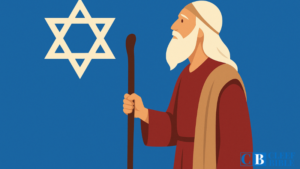


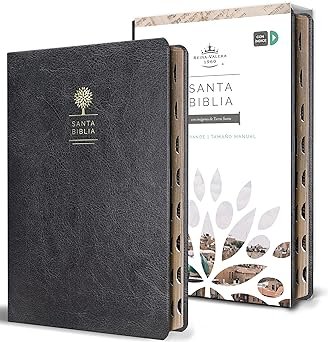









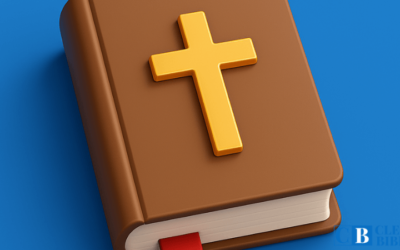
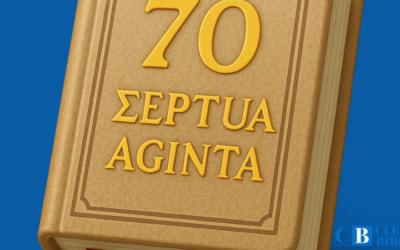

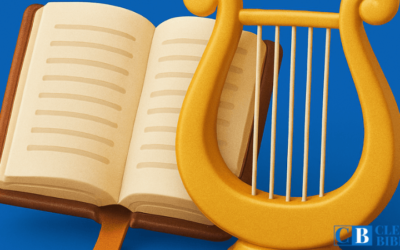




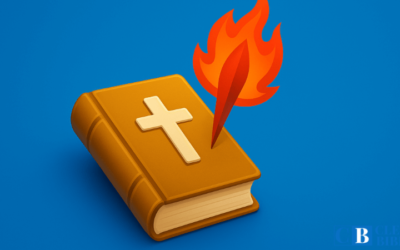
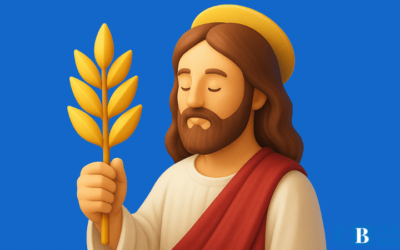

0 Comments